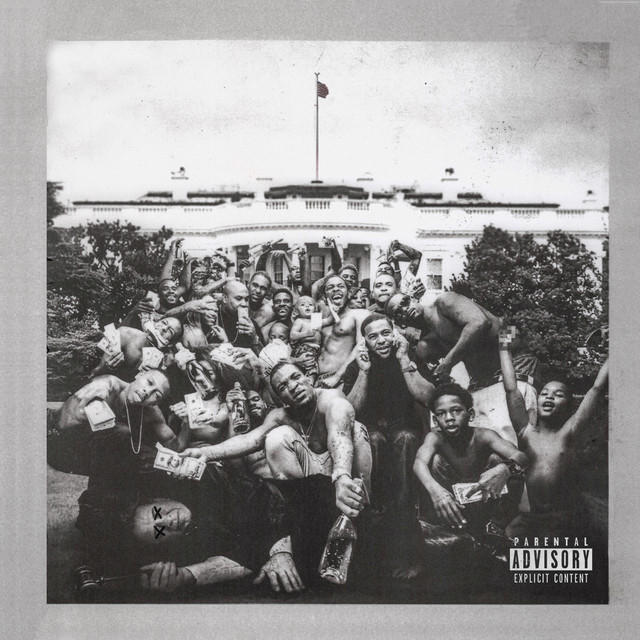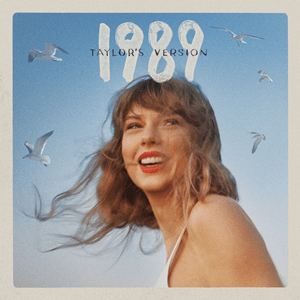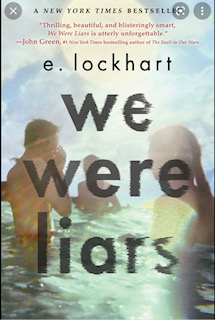Kendrick Lamar stays sincere in “To Pimp A Butterfly”
“I remember you was conflicted / misusing your influence / sometimes I did the same / Abusing my power, full of resentment / Resentment that turned into a deep depression / Found myself screaming in a hotel room / I didn’t wanna self-destruct…”
When you ask someone, “What’s the best hip hop album from the past five years?” chances are, they’re going to say, “good kid, m.A.A.d city.” Now, that’s not what I personally would answer (which would be “My Beautiful Dark Twisted Fantasy,” for the record), but since the 2012 release of his Grammy-nominated, major-label debut, Kendrick Lamar has undoubtedly reached the league of “mainstream hip hop.” Gone are the days of his fame limited to Internet rap forums, pretentious 20-somethings and YouTube music critics; today, he is one of the most recognizable and critically-acclaimed modern hip hop artists. Given all this, it’s no surprise his latest project “To Pimp a Butterfly” proves itself as yet another blockbuster concept album.
If you’re anything like me, you know Lamar best from “Good Kid, m.A.A.d City” (“GKMC”), so I should say, first of all, that “To Pimp a Butterfly” (“TPAB”) is not another memoir. Instead of focusing on a story, “TPAB” is worked around a commentary of social issues within the American black community, whereas “GKMC” was a narrative of Kendrick’s youth. One of my favorite things that they do share is a feeling of sincerity. Both “GKMC” and “TPAB” feel like Lamar made these records for one person: himself. And there is seemingly nothing more evident than this on “TPAB.” The production on this album isn’t suited to a mainstream audience (even though it has seemed to attain it nonetheless), and Lamar subtly revisits his first album “Section.80” in some cases with the dusty, experimental, jazz-influenced instrumentals donning a more contemporary spin. Many of the songs do share a common tempo, however, which was irritatingly repetitive. In fact, perhaps my favorite thing about “GKMC” was how each song carried such a strong identity sonically from one another; each track was so different in its own way.
There are quite a few different approaches to production on this album–from the minimalistic, yet upbeat prowess “King Kunta” exhibits, to the coarse, ominous tones of “The Blacker The Berry.” But even so, the songs’ overall atmospheres are much more blended than “GKMC.” Regardless, all 79 minutes of “TPAB” are replete with emotion and thought. Lamar’s lyrics yet again mirror his most personal ideas and convey them in a (slightly) convoluted and equivocal manner, as any artist should. The buried themes that cast a shadow over the album are daunting and forceful as Lamar encompasses issues within and surrounding the African-American community. This concept is as far from remarkable as can be to hip hop, but Lamar’s abrasive approach coupled with his reflections as a human being and rapper are what isolate this album to a different caliber.
I don’t think I made this clear, but I was very, very bored and unenthused by this album when I first heard it. In fact, it wasn’t actually until my fourth listen that I truly began to appreciate the sounds and themes that encapsulate the album, and found myself intrigued and enthralled by individual tracks. Some may find this album very accessible and vibe to it on their first listen, some may have to ease their way into it–and some may never like it. It certainly carries a certain sound that won’t appeal to everyone who likes hip hop. Whichever you land on, it truly is incredible to see Kendrick grow musically from his early days to the superstar he is now. I still remember the days before “GKMC,” when “Rigamortis” and “HiiPower” were his defining songs. Nobody had expected “good kid, m.A.A.d city” to be anything like it was, just like nobody had expected “To Pimp a Butterfly” to be what it is. While I don’t particularly love either album, I can still respect them and am very excited to see what Kendrick brings next.
Personal Score: 4/10
Musical Score: 8.5/10













